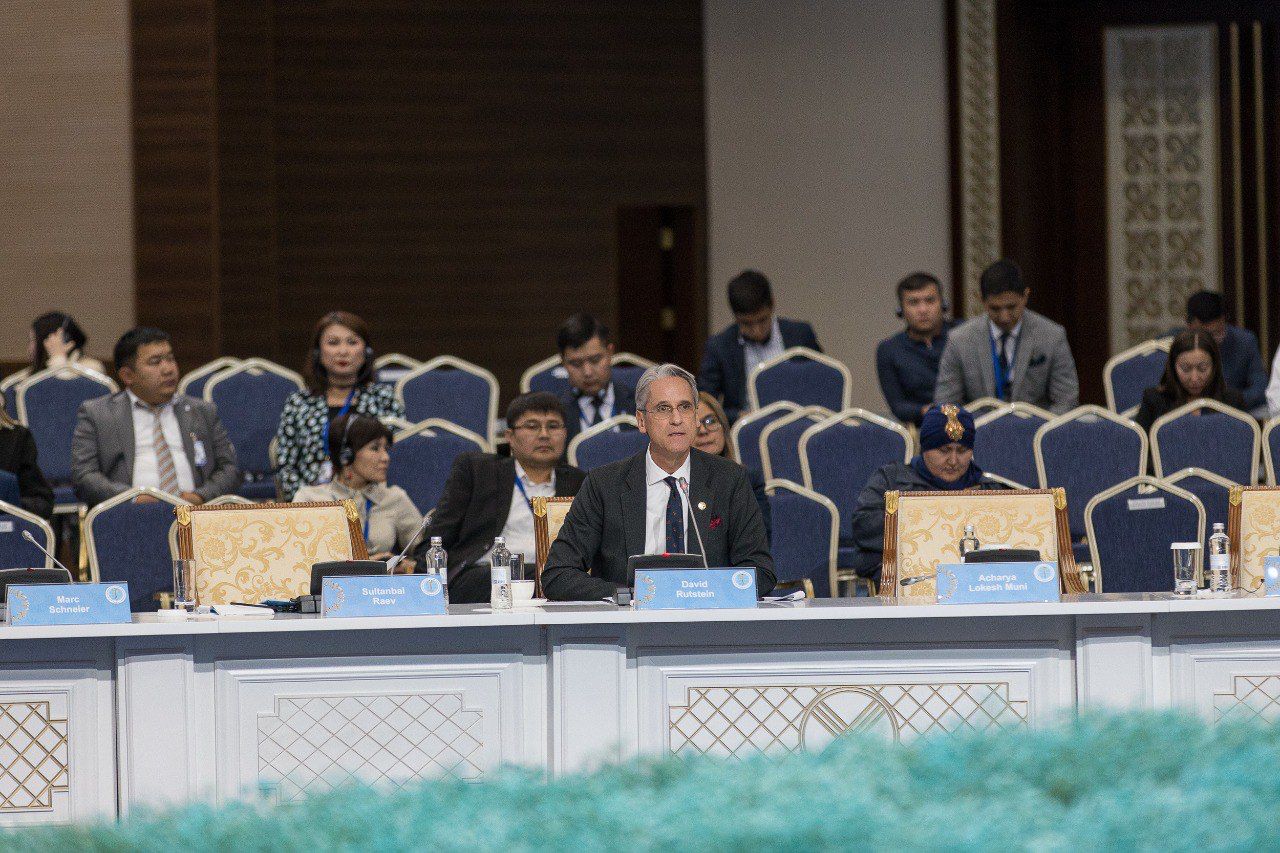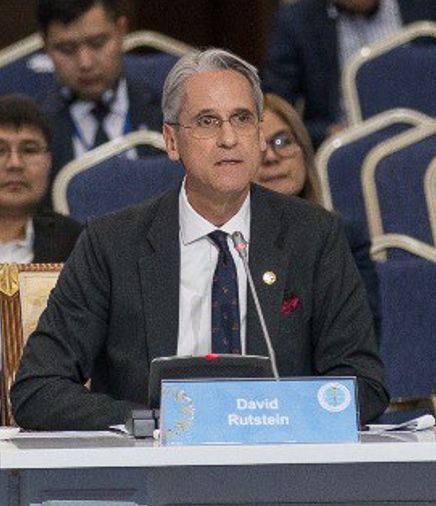I am delighted to share my thoughts on the remarkable commitment made by the government and people of Kazakhstan toward the promotion of inter-faith dialogue; the establishment of peace, harmony, and tolerance; the promotion of mutual respect between religions; and the prevention of religion-based conflicts. The chief vehicle by which such important work has been carried out has been the convening, every three years in Astana, of the Congress of Leaders of World and Traditional Religions. The most recent and seventh such Congress was held in September 2022.

Photo credit: The press service of the Congress of Leaders of World and Traditional Religion.
Much wisdom was shared at that gathering as we reflected on the role of leaders of world and traditional religions in the spiritual and social development of humankind in the post-pandemic period. Indeed, the event was noteworthy for the diversity of attendees and thoughts – a diversity that produced, at the Congress’ conclusion, a powerful and potentially far-reaching Final Declaration. In this and other regards, the Congress was an unequivocal success.

David Rutstein.
The Final Declaration of the seventh Congress summarized the religious, social, and material challenges the world now faces. It identified the collective actions needed to overcome such challenges. Consistent with the fact that the welfare of all of humanity is inextricably bound up with the welfare of any of its segments, the Declaration calls upon all of us to act. It is not just a document of platitudes. So, act we must, and act we have.
On Oct. 11, 2023, the XXI Secretariat of the Congress of Leaders of World and Traditional Religions convened in Astana, attended by religious leaders of numerous faith traditions, to exchange views on the results of the seventh Congress. The Secretariat also discussed and adopted the 2023-2033 Development Concept of the Congress of Leaders of World and Traditional Religions, a document that can be considered as the charter for the conducting future Congresses, addressing the pressing issues brought by Congress participants, and for implementing the Declarations of future Congresses to be held over a ten-year span. I am encouraged by the dedication and foresight of the Secretariat in preparing and disseminating such a powerful document.
Furthermore, we must encourage other leaders, along with religious and civil societies, to read and take to heart the principles outlined in the Development Concept. Religious leaders, vested with authority, and respected by most of the world’s population, can be the chief proponents of the actions called for in the document, which enunciates a shared understanding of universal values and certain basic principles. Notable among them is the abolition of all forms of prejudice and exclusivity while celebrating the diversity of the human race; defending the right of every individual to seek truth independently; the recognition that men and women are equal; the essential harmony of science and religion; the need for everyone to have access to education; and the continual striving for both peace and justice.
We can be assured, and should continually proclaim to the world, that humanity is one. We share the same planet and were created through the Will of the same Divine Source. Bold and trustworthy actions taken in support of this reality can and must serve the interests of rational people everywhere. Science and religion are part of the same continuum of truth, and shared religious principles are the foundation upon which spiritual and social development depend. Bahá’u’lláh’s statement that all people are “created to carry forward an ever-advancing civilization” implies that everyone has the responsibility to contribute to the peace, prosperity, and unity of the entire human family. I have no doubt that the example set by Kazakhstan in this regard can continue to inspire all of us to greater heights of service.
The author is David Rutstein, the Secretary General of the Baha’i International Community.
The religion and organization in question are the Bahá’í Faith and the Bahá’í International Community, respectively. The Baha’i is an independent world religion. The Baha’i International Community is the non-governmental organization that represents the global Baha’i community. It has been registered with the United Nations as a non-governmental organization since 1948.
Disclaimer: The views and opinions expressed in this article are those of the author and do not necessarily reflect the position of The Astana Times.
